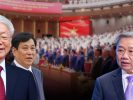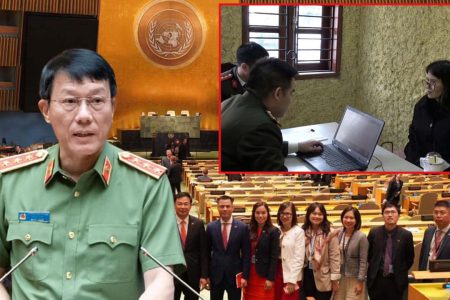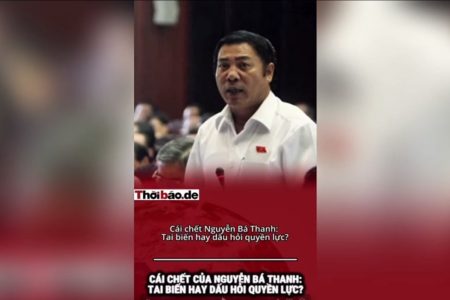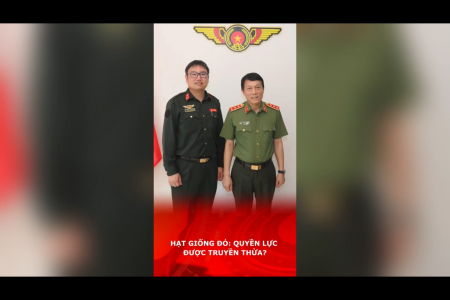
After being internationally praised for being the eighth in controlling the Covid-19 pandemic, in 2021, Vietnam finally faces a very strong outbreak due to the impact of the Delta variant, which is contagious and spreads very quickly.
As of December 22, the number of Covid-19 infections in Vietnam has reached nearly 1 million 600 thousand cases and the total number of deaths has surpassed the threshold of 30,000. Currently, on average, about 200 people die from Covid every day in Vietnam and the number of infections per day is still more than 10,000.
Covid-19: Struggling because of the Delta variant
The most serious epidemic situation is in the southern provinces, especially in Saigon, where the local government even had to issue a curfew, an unprecedented measure in Vietnam since the war.
There has been a lot of controversy about how to prevent the epidemic in Vietnam, especially about isolating infected people, which Vietnam calls F0, and people who have close contact with F0 called F1. Because the number of infections increased too much, Vietnamese authorities were finally forced to let F0 cases self-isolate at home but could not continue to be isolated as before.
Responding to RFI Vietnamese on December 21, Dr. Truong Huu Khanh, epidemiologist, former head of the Neuro-Infection Department, Children’s Hospital 1, Saigon:
“Isolating such a large number of people will definitely overload the treatment block because bringing people in there is not only about treatment, but also logistical problems: eating and sleeping. This is more important than cure. Such isolation will be difficult for people to overcome mentally. Isolation can’t be as perfect as staying at home. With such a medical staff, it is impossible to ensure quality.
If the goal of isolation is to prevent community transmission, then perhaps change, must be learned about this. Especially after there is a vaccine, it has to be dropped. If you self isolate yourself at home and adhere to it well, you can already protect the community.“
Prolonged social distancing measures aiming to stop the pandemic have made people’s lives more miserable, especially migrant workers in Saigon. According to doctor Truong Huu Khanh, the problem is that those social distancing measures have not really worked:
“When the distance is like that, the effect is not the best as the government would like. Actually, at that time in Saigon, the distance was on the road surface, but the disease was not spread on the road surface, but it was spread in the hamlets and in the boarding houses. If we distance ourselves from the outside but we don’t distance from the inside, it won’t work. The right way to stretch is effective. Therefore, the failure of the distance did not prevent the epidemic much, it was because we were not drastic enough to let the people standstill. So at that time the virus was still spreading in narrow neighborhoods, the number of cases was still increasing.“
The closure of factories to prevent the spread of coronavirus has also affected the global supply chain, as Vietnam is the processing place for many major international brands such as Nike. Since October, Vietnamese authorities have either lifted or relaxed those measures, gradually reopening the economy and allowing factories to reopen.
Covid-19: Omicron risk
Currently, although the number of daily infections is still increasing, thanks to high vaccination rates, Vietnam plans to reopen its borders to save the tourism industry that has been nearly exhausted after months of closure. Specifically, from January 1, 2022, Vietnam will welcome foreign tourists and Vietnamese citizens from abroad, provided that these people must have a negative PCR test result within 72 hours before entering the country. The time for self-isolation and re-testing depends on whether the person entering Vietnam has been fully vaccinated or not.
To prepare for the opening of the border, Vietnam will reopen regular international flights in two phases. In phase one, 9 routes will be reopened between Vietnam and Beijing/Guangzhou, Tokyo, Seoul, Taipei, Bangkok, Singapore, Vientiane, Phnom Penh, and San Francisco/Los Angeles.
For the second phase, which will be implemented after the end of phase one, the transport sector proposes to open more routes to/from Kuala Lumpur, Hong Kong, Paris, Frankfurt, Sydney, and Moscow. But the above plans are likely to be disrupted again, because now the Omicron variant, known to spread faster than Delta, has appeared in many countries, including those that Vietnam plans to open flights again.
In recent days, the Vietnamese government has strengthened control measures to try to prevent the Omicron variant from entering Vietnam. However, according to Dr. Truong Huu Khanh, it is very difficult to prevent the spread of the Omicron variant in Vietnam.
Politics: Nguyen Phu Trong was suddenly re-elected
Politically, 2021 has been marked by Mr. Nguyen Phu Trong, born in 1944, unexpectedly re-elected general secretary of the Communist Party of Vietnam for a third term, while according to the party’s charter, the leader of the party cannot hold power for more than two terms, and leaders over the age of 65 must retire. Trong must continue to hold the position of the general secretary because the Party Congress at the beginning of 2021 could not find a person with the ability and caliber to replace him.
This is a „special case“ Nguyen Phu Trong has become the most powerful leader of Vietnam since Le Duan, although he later had to transfer the presidency to Mr. Nguyen Xuan Phuc, approved by the National Assembly officially elected in April 2021.
With such power, Mr. Nguyen Phu Trong has continued to step up the anti-corruption campaign in the party, thereby excluding his opponents. One of the „victims“ of the „burning furnace“ campaign launched by Nguyen Phu Trong is former Chairman of the Hanoi People’s Committee Nguyen Duc Chung, who was sentenced in mid-December to another 8 years for the crime of “ Abuse of positions and powers while performing official duties“ while serving a 5-year prison sentence after the trial last December for the crime of „Appropriating State secret documents.“
Another notable figure who was put into the „kiln“ was former Vietnamese Minister of Industry and Trade Vu Huy Hoang in April, who was sentenced to 11 years in prison April for „violating regulations on management and use of the state to cause loss and waste.“
Continued international condemnation for human rights
But 2021 is also the year The Diplomat calls „Annus Horribilis“ about human rights, which means a very bad year for human rights, especially with a series of democracy and human rights activists being jailed with lengthy imprisonment. Typically, famous journalist Pham Doan Trang was sentenced to 9 years in prison in Hanoi on December 14 for „making, storing, distributing or propagating information, documents, and items aimed at opposing the State„, according to Article 88 of the Vietnamese Penal Code. In the following two days, three other activists went to court with the same charge: Trinh Ba Phuong was sentenced to 10 years in prison and 5 years of probation, Nguyen Thi Tam 6 years in prison and 3 years of probation, Do Nam Trung 10 years in prison and 4 years of probation. International human rights organizations such as Human Rights Watch, Reporters Without Borders, Committee to Protect Journalists … as well as some Western countries have strongly condemned these cases.
On December 17, the United Nations High Commissioner for Human Rights also issued a statement expressing concern about the prison sentences of land and human rights activists in Vietnam, calling on the Hanoi government to immediately release them.
But not yet, in principle, on December 31, it will be the turn of journalist Le Trong Hung, who once intended to run for the National Assembly election, who was arrested in March 2021 and tried for the same allegation.
As Human Rights Watch recalls, the Hanoi government regularly uses Criminal Code’s Article 117 to silence voices critical of the government and the Communist Party of Vietnam. In 2021 alone, courts have convicted at least 18 other people under the aforementioned law and sentenced them to between four and 15 years in prison.
As commented by Stewart Rees, a collaborator of Project 88, an organization that works to promote freedom of speech in Vietnam, on The Diplomat on December 15, year-end prison sentences „as a word“ reminding that the Vietnamese government feels it has the freedom to act without fear of international sanctions.“ He wrote: „Vietnam is likely to be elected as a member of the United Nations Human Rights Council next year, adding to the outrage after what has happened over the past year in this country, like Vietnam’s behavior deliberately mocking human rights.“
Diplomacy: Still swing between the two superpowers US-China
Regarding US-Vietnam relations, President Joe Biden, who took office in January 2021, has maintained the policy of his predecessor Donald Trump towards Vietnam, which considers Hanoi an important strategic partner of the United States in Asia. The Biden administration has strengthened strategic ties with Vietnam, even to the satisfaction of Hanoi, Washington has no longer viewed Vietnam as a currency manipulator.
But according to scholar Richard Heydarian in Manila, Philippines, writing on the website of the South China Morning Post on October 18, instead of establishing an alliance with the US, Vietnam still pursues a strategy of balancing relations with the US and China. Hanoi still implements the „three Nos“ policy: not joining the military alliance; not affiliated with one country to fight another; not allowing foreign countries to set up military bases or use Vietnam’s territory against other countries (in fact, now this policy has become „four Nos“ with the fourth point being „not to use force or threaten threat to use force in international relations”).
It is in that direction that over the past year, Vietnam has strengthened its relations with other important partners such as Japan, through Prime Minister Pham Minh Chinh’s visit to Tokyo at the end of November, during the summit meeting in the Japanese capital on November 24, 2021, PM Chinh and PM Fumio Kishida announced that the two countries would increase security cooperation, and simultaneously expressed concern about China’s actions in the region. regional waters, including the East Sea (South China Sea).
Previously, after attending the COP26 climate summit in Glasgow, Scotland in November, Chinh also visited France, an important partner, and on this occasion, the two countries signed many important contracts.
Strong commitment to climate change
In terms of climate, a notable event in 2021 is that at the COP26 climate summit, PM Chinh announced Vietnam’s commitment to achieving net-zero emissions by 2050. This is considered a very strong commitment because of that, Vietnam has to gradually give up coal power plants, which emit a lot of greenhouse gases that cause global warming, and will have to promote the development of alternative energy sources, including renewable energy sources such as solar power, wind power, etc.
But to be able to fulfill that commitment and still meet the increasing demand for electricity of a fast-growing country, in addition to renewable energy, Vietnam will be forced to consider restarting its nuclear power plant project that Vietnam abandoned before. This issue has been one of the topics of discussion between Vietnam and Russia during President Nguyen Xuan Phuc’s visit to Moscow at the end of November.
In the immediate future, according to the director of the Vietnam Atomic Energy Institute Tran Chi Thanh at the national conference on nuclear science and technology opening on December 9 in Da Lat, a nuclear science and technology research center, with a new reactor with a capacity of 10 MWt, will be built with the help of Russia to develop Vietnam’s atomic energy industry.
Vietnam and Russia signed a memorandum of understanding in 2011 on a nuclear power plant project, but the project was suspended due to nuclear safety concerns after the Fukushima disaster in March. If the Vietnamese leaders decided to return to the nuclear power development program, the aforementioned reactor will likely be the beginning of that program and of course, the leading partner will almost certainly be Russia.
Thoibao.de (Translated)


























